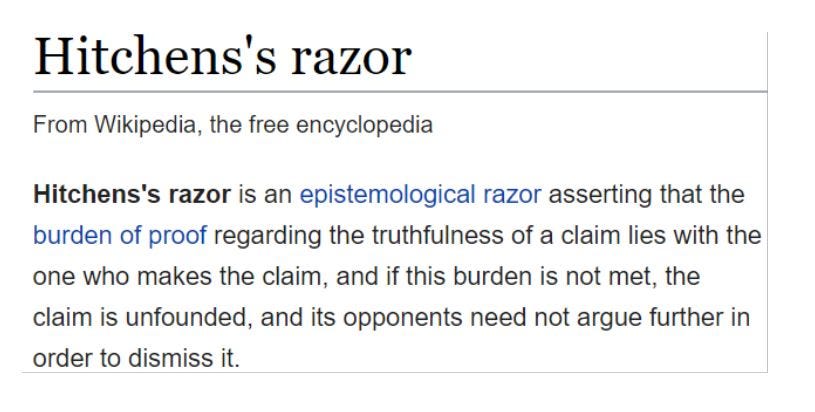This is a guest post by Dr. Sally Satel, a resident scholar at AEI and the staff psychiatrist at a local methadone clinic in D.C. Dr. Satel was an assistant professor of psychiatry at Yale University from 1988 to 1993 and remains a lecturer at Yale. She has published a slew of books, academic articles and public essays. In 2021, she was one of ten founding members of the Society for Open Inquiry in the Behavioral Sciences, which is dedicated to preserving a bastion of social science for free inquiry and open discourse, and which you can find out more about here. This inspired us to collaborate on an edited book, The Free Inquiry Papers (forthcoming this year, we hope), a clarion call collection of articles and essays dedicated to defending and advancing academic freedom and free inquiry.
Sally Satel
As part of the drive to “dismantle” racism in medical schools that was ignited by the 2020 murder of George Floyd, medical schools are looking for ways to increase the diversity of their faculties.

A Call to “Center Women of Color” in Medicine
A recent Perspective feature in New England Journal of Medicine, “Centering Women of Color to Promote Excellence in Academic Medicine,” offers several proposals to promote faculty diversity, particularly by prioritizing the advancement of Black women in institutions that, in the authors’ words, “weren’t created with us in mind.”
Unfortunately, many of their proposals are unlikely to enhance academic excellence. They may undermine it – a price that medical profession cannot afford.
The three authors, all women physicians, advise schools to review institutional policies and procedures “through the lens of disparate effects on women of color.” In particular, institutions should “consider promotion-related policies [with regard to] longstanding inequities between Black scientists and White scientists in the receipt of National Institutes of Health (NIH) funding.”
The advancement process, they say, could also take into account “work related to diversity, equity, inclusion, and antiracism throughout each of the traditional domains of faculty evaluation (research, service, education, and clinical care).” The authors also want to reduce the minority “tax,” which refers to “the burden associated with engaging in more (unpaid) mentorship and committee service than other faculty members.”
Evidence of Discrimination Against Women of Color in Medicine?
What are the alleged injustices these proposals seek to remedy? Take grant-making. The authors presume that differential rates of NIH awards reflect racial discrimination, but they do not present evidence of unfairness against women of color. To infer discrimination, we would need to know that scoring standards for scientific merit, or other steps in the evaluation process, were applied unequally to Black women.
The existing data offer little support for that conclusion. One small but ambitious study of blinded applications found no evidence of reviewer bias in the initial evaluation of R01 proposals. A large survey of NIH grants showed that minority scientists from schools with weaker institutional resources, such as equipment and space, submitted fewer applications – but this pattern held regardless of race. (The NIH is aware of this: see new funding opportunity for resource-limited institutions that serve underrepresented populations). At the next stage of the application process, where impact scores were assigned, Black scientists’ applications received poorer evaluations.
Further, proposals on certain topics, such as health disparities -- which are more commonly choses as a topic by Black applicants -- tended to receive lower scores. It is unclear whether reviewers assign less intrinsic value to health disparities as a topic of research, or whether proposals to study disparities tend to be methodologically weaker than competing proposals.
We can fairly ask whether reviewers are judging by optimal criteria. For example, are career stage, resource availability, and choice of study topic the best markers of proposal merit? Or, alternatively, do such markers correlate with more rigorous and innovative plans of work? Either way, the grant-making process is geared towards quality, not against women of color.
Consider the authors’ idea that “leaders could take steps to identify and eliminate potential funding disparities within their institution [by awarding internal grants] on the basis of a holistic review that takes into account the importance of faculty diversity.” Rewarding diversity for the sake of diversity is not a prescription for academic excellence. As for patient care, research on the benefit of racial matching between doctor and patient is mixed, at best.
Favoring minority candidates for promotion based upon criteria other than academic performance will not only lower the standards of academic excellence, but will also foster resentment among their colleagues. According to Andrea Lucas, a commissioner at the federal Equal Employment Opportunity Commission, discriminating on the basis of race to achieve “equity” is also illegal.
The authors claim that women of color do more mentoring and service work than their colleagues, but I could find no quantitative attempts to compare minority faculty to White faculty in service burden. I suspect that other faculty members do an equivalent share of committee work by sitting on IRBs, admissions committees, ad hoc committees, and so on.
Center Excellence
I do sympathize with those who feel tokenized or obligated when tapped to participate because they are an under-represented minority, particularly when they do not find such activities rewarding or career-advancing. Departments need to protect the time of all junior faculty, not just women of color, who must write grants and papers, conduct research, and see patients.
Nonetheless, I am not persuaded that “centering” women of color – or any group for that matter – is a path to academic distinction. Increasing diversity is not necessarily in tension with academic merit—and in general, worth striving for, but not at the expense of excellence. The proposals from these authors will not promote excellence. In academic medicine, that must take precedence.







Thanks. I thought as much but wanted to ask. Appreciate your quick reply
I want my surgeon appointed for her/his excellence, not his race or gender.